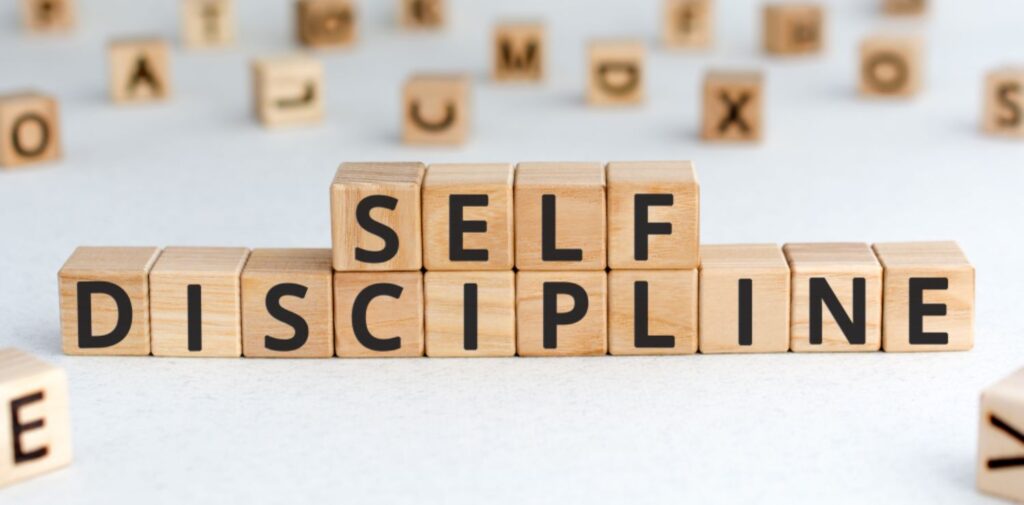In the vibrant and dynamic landscape of India, where opportunities are abundant yet highly competitive, mastering the art of self-discipline is crucial for young adults aiming to carve out successful careers and fulfilling lives. Self-discipline is more than just a personal trait; it is a vital skill that fuels long-term success, enabling individuals to stay focused, manage time effectively, and overcome challenges. This guide explores the essence of self-discipline, offers practical strategies to cultivate it, and provides insights tailored to the unique challenges faced by young adults in India.
Understanding Self-Discipline
Self-discipline is the ability to control one’s actions, emotions, and behaviors in order to achieve long-term goals. Unlike willpower, which can be fleeting and easily exhausted, self-discipline involves creating and adhering to habits and routines that consistently lead towards your objectives. It is a foundational skill that supports perseverance and resilience, crucial for navigating the competitive and fast-paced environment in India.

The Science Behind Self-Discipline
Research reveals that self-discipline is closely linked to cognitive functions and brain activity. The prefrontal cortex, responsible for decision-making and impulse control, plays a key role in self-discipline. Studies show that self-control is akin to a muscle that can be strengthened through regular exercise and practice. In practical terms, this means that developing self-discipline is not about relying on sheer willpower but about building consistent, positive habits.
Common Challenges Faced by Young Adults in India
- Procrastination: The tendency to delay tasks can be a major obstacle. With numerous distractions, including social media and entertainment, procrastination is a widespread issue.
- Distractions: The digital age has brought an array of distractions that can derail focus and productivity. Smartphones, social media, and streaming services can easily divert attention from important tasks.
- Lack of Motivation: Without clear goals or a sense of purpose, maintaining self-discipline can become challenging. In a country where societal expectations can be overwhelming, finding personal motivation can be difficult.
Building Self-Discipline: Practical Tips
- Set Clear and Achievable Goals
- Define Your Objectives: Start by setting clear, specific goals. Instead of vague resolutions like “I want to be successful,” specify what success means to you, such as “I want to secure a job in a leading tech company within six months.”
- Break Goals into Manageable Steps: Divide your long-term goals into smaller, actionable tasks. This approach makes the process less daunting and allows you to track progress more effectively.
- Develop Positive Habits and Routines
- Create a Daily Schedule: Establish a daily routine that includes time for work, study, exercise, and relaxation. Consistency in your routine helps build self-discipline and ensures that important tasks are prioritized.
- Practice Time Management: Use tools such as planners or digital apps to organize your tasks and manage your time efficiently. Setting deadlines and reminders can help you stay on track.
- Practice Self-Control and Mindfulness
- Mindfulness Techniques: Engage in mindfulness practices like meditation to improve focus and self-awareness. Mindfulness helps you stay present and make deliberate choices, reducing impulsive behaviors.
- Delay Gratification: Practice delaying immediate rewards in favor of long-term gains. For instance, resist the urge to watch TV until you’ve completed your study sessions.
- Seek Accountability and Support
- Find a Mentor: A mentor can provide guidance, motivation, and feedback. Look for experienced professionals or academic advisors who can help you navigate your goals and stay disciplined.
- Join Study Groups or Accountability Partners: Collaborate with peers who share similar goals. Regular check-ins with accountability partners can provide motivation and support.
- Embrace a Growth Mindset
- Adopt a Positive Attitude Towards Challenges: View challenges as opportunities for growth rather than obstacles. A growth mindset fosters resilience and helps you stay disciplined in the face of difficulties.
- Learn from Setbacks: Instead of viewing failures as setbacks, see them as learning experiences. Analyze what went wrong and adjust your strategies accordingly.

Habits of Highly Disciplined Individuals
- Early Rising: Many successful individuals adhere to early rising habits, which provide a head start on the day and allow for uninterrupted focus. Consider waking up early to work on important tasks or personal projects.
- Regular Exercise: Physical activity enhances mental discipline and overall well-being. Incorporate regular exercise into your routine to boost energy levels and reduce stress.
- Continuous Learning: Invest time in learning and self-improvement. Engaging in continuous education and skill development keeps you motivated and disciplined.
Creating a Supportive Environment
- Build a Conducive Study Environment: Create a study or work space free from distractions. A well-organized and quiet environment can enhance focus and productivity.
- Surround Yourself with Motivated Individuals: Engage with people who inspire and motivate you. Positive influences can reinforce your self-discipline and drive towards your goals.

Overcoming Setbacks
- Reflect and Reassess: When faced with setbacks, take time to reflect on what went wrong and reassess your approach. Adjust your goals or strategies as needed, but remain committed to your overall objectives.
- Maintain a Positive Outlook: Stay positive and focused on your progress rather than dwelling on failures. Celebrate small victories and use them as motivation to continue moving forward.
Practical Exercises to Enhance Self-Discipline
- Goal-Setting Challenge: Choose a specific, measurable goal and develop a detailed plan to achieve it. Track your progress and adjust your strategies as necessary.
- Daily Routine Tracker: Keep a journal or use an app to monitor your daily routines and productivity. Regularly review your progress and make improvements where needed.
- Mindfulness Practice: Dedicate a few minutes each day to mindfulness exercises, such as meditation or deep breathing, to improve focus and self-awareness.
Conclusion
Mastering self-discipline is essential for young adults in India who aspire to achieve their goals and succeed in a competitive environment. By setting clear goals, developing positive habits, seeking support, and maintaining a growth mindset, you can build the self-discipline needed to overcome challenges and reach your potential. Remember, self-discipline is not an innate trait but a skill that can be developed and strengthened with consistent effort and practice.
Identify an area of your life where you want to improve your self-discipline. Set a clear goal, implement the strategies outlined in this guide, and track your progress. Share your experiences and learnings with others to inspire them to cultivate their own self-discipline. Embrace the journey of self-improvement and let self-discipline be the key to unlocking your full potential.




